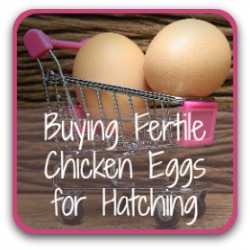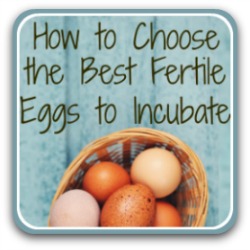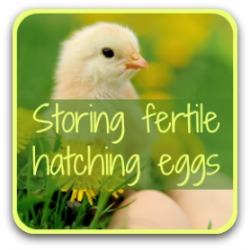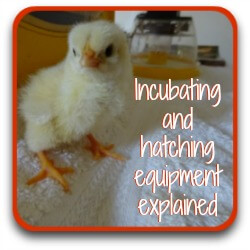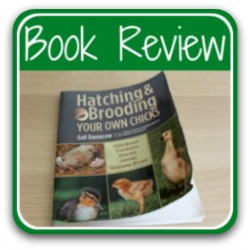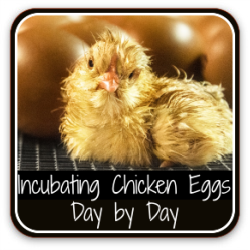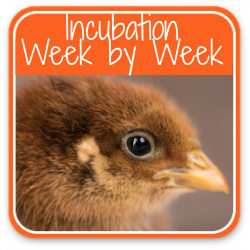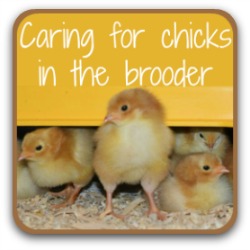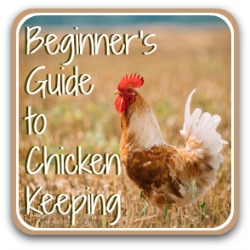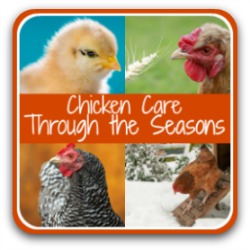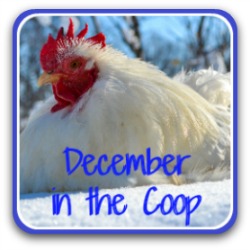- Home
- Before you incubate
Pre-incubation: best advice to prepare your chicken eggs for a successful hatch.
If you're looking forward to incubating chicken eggs and hatching your very own chicks but you're worried about how it's all going to work out, this is the place for you!
Incubation and hatching can be the most rewarding, happy experience. It can also be a very stressful time. There's a lot that can go wrong.
It's important to be aware of the need to care for your hatching eggs long before you put them into your incubator. Looking after them at that stage gives them the best possible start and is more likely to lead to a successful hatch.
From basic facts about fertile eggs, to how to choose the best, how to transport them, and how to store them before they go into the incubator, the links on this page go to articles covering all those issues - and more!
Taking time to read these articles will to make sure your incubating and hatching experience all goes as well as possible for you.
There's a lot of information here. No time to read it all now? Why not Pin for later!
Before you start: are you sure?
If you're thinking about either buying or hatching your own chicks, there are five critical questions you need to ask yourself before you start.
From what you'll do with males to the financial costs involved, this article helps you think through them one by one.
Don't be caught out - be sure now!
Fertile chicken eggs: the facts
So you've made the decision to incubate. Now you need to know about how to keep fertile eggs safe before you begin incubation.
This article takes ten facts about fertile eggs and gives you the facts - backed by evidenced information.
Read it before you decide which eggs to put into your incubator.
Where to find good quality fertile eggs for hatching
If you decide to incubate from within your own flock, finding fertile eggs for hatching won't be a problem - as long as your chickens are healthy.
But buying from someone else can be a nightmare.
This article advises how to find a place to buy near you, and how to tell whether a seller is reputable or not.
Cackle Hatchery: a review
If you're not able to buy fertile hatching eggs or baby chicks from a reputable breeder and you live in the United States, the next best option is to buy from a reputable hatchery.
This article reviews one of the largest and most successful hatcheries, assessing the type and quality of its stock, availability, shipping and a summary of independent reviews.
How to choose the best hatching eggs
It's critical to know how to choose the fertile eggs which will have the best possible chance of success.
This article covers the features to look for when choosing which eggs to put into your incubator.
Choosing the right eggs can greatly increase your chance of successfully hatching. Don't pass this article by.
How to receive or send fertile chicken eggs
Whether you've ordered eggs to be sent by post, or you're sending them yourself, there are issues about using mail you need to be aware of.
This article covers in detail packing, the risks of sending by post, the legalities of carrying eggs across state borders and what to do with eggs you receive by mail.
Transporting fertile chicken eggs by air
Is it possible - or even legal - to take fertile eggs between countries? How can it be done, and what are the risks?
This article examines whether there's any evidence that travel by air has a bad effect on the hatchability of fertile eggs.
How to store fertile eggs for hatching
You now need to know how to store your eggs safely until they're ready to go into the incubator.
This article covers everything from cleanliness and where to keep them to temperature to turning and, most importantly, which way up the eggs should be kept.
Your eggs are ready - now what?
Incubating equipment: how to choose and set it up
Now you need to make sure you have the right pieces of equipment to start the incubation process.
This series of articles describes the equipment you'll need from start to end of the incubation process, including incubators, candlers, and brooders.
It also contains links to articles about how to set up and use all the equipment you'll need.
Incubation: frequently asked questions
Here are answers to the most often asked questions about incubating, from whether a hen who's not laying can incubate chicks to whether different breeds and types of poultry can be incubated at the same time.
It will also help you to understand the ideal conditions the incubator needs to be in when the eggs are finally set.
Name that chick!
You have at least 21 days to wait, once your eggs are set in the safety of the incubator, before you have chicks. Time to think about cute names!
This page contains hundreds of names from all kinds of different places.
You're bound to find some you love - in fact, the problem will be choosing which to go for!
Incubating book review
Gail Damerow is one of the world's leading experts on hatching and raising chicks at home or in schools. This book is widely looked on as the ultimate go-to resource when incubating.
I offer a full and thorough review, including asking whether objections raised by others who have bought it are fair or not.
Other articles to help with planning for happy chicks.
- Home
- Before you incubate



